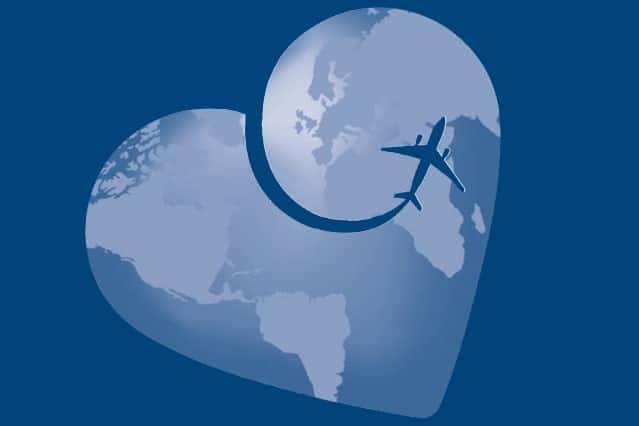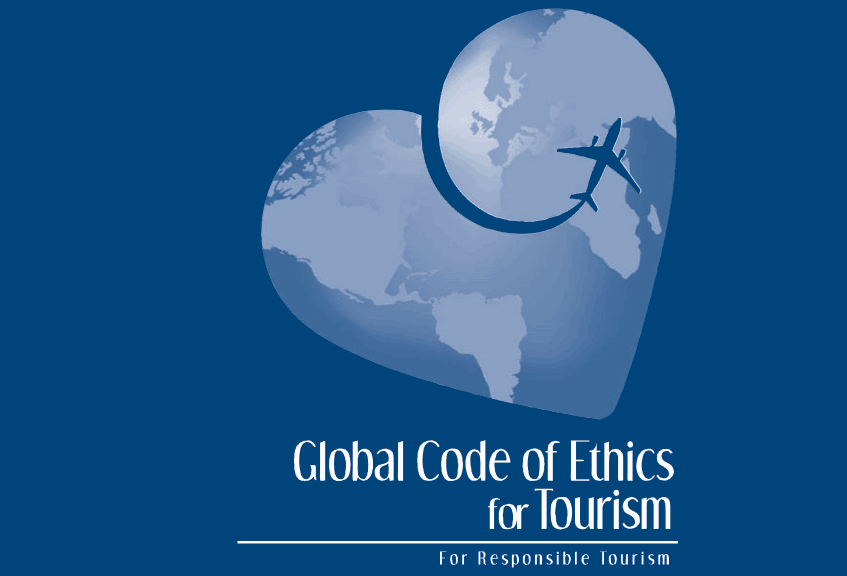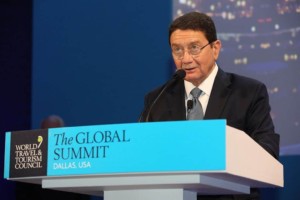“Historical moment” as tourism ethics code becomes a convention

The Convention covers the responsibilities of all stakeholders in the development of sustainable tourism, providing a framework that recommends an ethical and sustainable modus operandi, including the right to tourism, the freedom of movement for tourists, and the rights of employees and professionals.
Chairman of the World Committee on Tourism Ethics (WCTE) Pascal Lamy said: “In an interconnected world where the business volume of tourism equals or even surpasses that of oil exports, food products or automobiles, it is important to set out a legal framework to ensure that growth is dealt with responsibly and that it can be sustained over time. Tourism is a power that must be harnessed for the benefit of all.”
Lamy was appointed chair of the WTCE in 2013. The WTCE presented the Convention on Tourism Ethics to the 22nd UNWTO General Assembly, where it was approved yesterday (September 15, 2017).
The original Global Code of Ethics for Tourism was adopted in 1999. In 2015, the WCTE submitted to the General Assembly of the UNWTO a proposal to convert the Global Code of Ethics for Tourism into an international convention in order to “reinforce its effectiveness”.
Consequently, the UNWTO Secretary-General established a “special Working Group to examine the procedures and implications of adopting such a Convention in cooperation with the [WCTE]”.
The Working Group, composed of representatives of 36 UNWTO Member States, examined the original draft text of the Convention and agreed not to make substantial changes to “nine core principles” of the Global Code of Ethics for Tourism “as these were already accepted by the UNWTO General Assembly in 1999 and are widely known by the international Tourism community”.
These nine articles are reproduced in the Draft Convention on Tourism Ethics under the section “Ethical Principles in Tourism” and constitute the backbone of the Convention.
The original Code has ten articles, which are:
- Tourism’s contribution to mutual understanding and respect between peoples and societies
- Tourism as a vehicle for individual and collective fulfillment
- Tourism as a factor of sustainable development
- Tourism as a user of the cultural heritage of mankind and contributor to its enhancement
- Tourism as a beneficial activity for host countries and communities
- Obligations of stakeholders in tourism development
- Right to tourism
- Liberty of tourist movements
- Rights of the workers and entrepreneurs in the tourism industry
- Implementation of the principles of the Global Code of Ethics for Tourism
The UNWTO Executive Council endorsed the approach of avoiding any unnecessary changes to nine core principles in order to finalise a draft text of the Convention for the consideration of the 22nd UNWTO General Assembly. This happened yesterday (September 15, 2017).
Now that the Code is a “proper Convention”, it “represents a significant step towards ensuring that tourism development is done with full respect for sustainable development, social issues, local community development, improves understanding between cultures and addresses labour issues”, according to UNWTO.
“This is an historical moment for UNWTO”, said outgoing Secretary General Taleb Rifai. “The approval of the Convention is a strong legacy of the International Year of Sustainable Tourism for Development that we celebrate this year. It is also a strong sign that countries are committed to make tourism a force for a better future for all. It reinforces UNWTO institutional outreach in the UN system.”
On September 14, 2017, Zurab Pololikashvili, the Ambassador of Georgia to Spain, Morocco, Algeria and Andorra, was appointed Secretary General of UNWTO for the period 2018 – 2021.
Download

The original Global Code of Ethics for Tourism (PDF 787 KB) was adopted in 1999. It is now an international convention.
UNWTO’s Global Code of Ethics for Tourism (PDF 787 KB). Other formats and languages are available here.
Related posts





